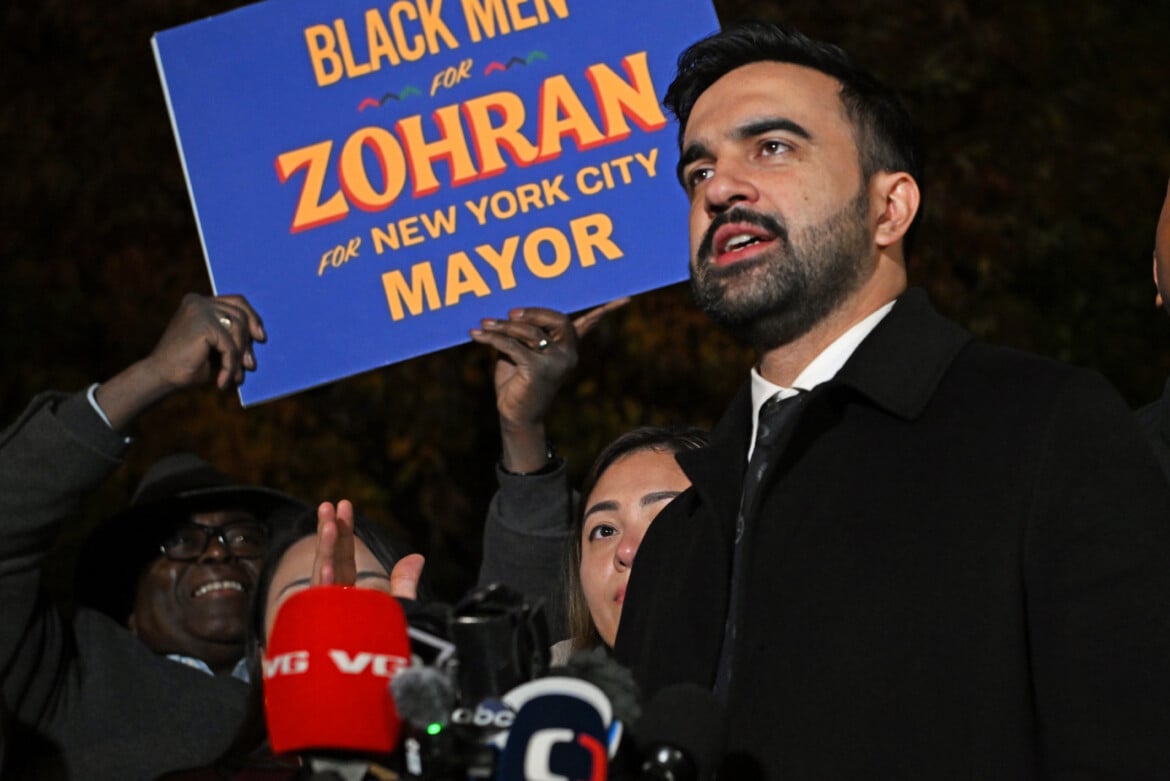Commentary
Zohran Mamdani’s lessons for Europe
Mamdani’s success is a clear message to a disoriented European left, still held captive by the technocratic rhetoric of digitalization and green growth. A new reformism must start from everyday experiences: rent, utility bills, commute times.

More than just the success of a brilliant outsider, Zohran Mamdani's election as mayor of New York is a lesson of enormous importance for centrist political forces in Europe. After three decades of chasing economic growth, 21st-century politics is starting again, not from productivity as a foundation, but from social reproduction and provisioning – that is, how a society guarantees all its members access to fundamental goods and services.
The key is to reconnect the economy and citizenship, a question that is simultaneously political, moral and technical. A program of collectivist reformism must guarantee everyone decent food, affordable housing, good health and adequate mobility.
This is a lesson in both content and method. Mamdani, like few other Western leaders, has understood that the “cost of living crisis” is not simply an income crisis; it is a provisioning crisis. This isn't about inflation or stagnation, but about profound dysfunctions in the foundational economy – that part of the economy that produces and distributes the essentials of daily life: housing, energy, water, food, transport, health and education. When these circuits break down, it is not enough to talk about growth or productivity: the issue becomes political and social.
Mamdani understood that there is a direct link between this crisis of livability and the dynamics of inequality. Families today are poorer and more vulnerable, and that is because the system that should protect them – the economy of daily life – has become a privileged domain for profits, rents and dividends. Citizens are paying unsustainable rents, higher bills and receiving worse services, all while spending time as well as money to procure essential goods, because rentiers, shareholders and investors are accumulating wealth in these very sectors which are decisive for daily life, driving inflation since the 2000s. Mamdani had the clarity to name this reality and make it the lynchpin of his agenda: renewing the economy of everyday life.
Third, Mamdani understood that when the foundational economy fails, democracy falls apart. Dysfunctional provisioning systems leave many citizens living below their expectations. This results in disaffection, frustration and resentment, expressed not only through voter abstention but also in votes for “insurgent,” populist, nationalist, and reactionary groups. This is why the left must return to prioritizing the foundational economy and, with the help of social movements, work on projects that can shift the Overton window – that is, broadening what is politically thinkable and practicable.
Mamdani is contributing to this shift by insisting that providing basic goods requires not only more resources, but a new structure of production and distribution, one capable of balancing economic sustainability for producers with social justice for consumers. This is not about nationalizing everything, but about redefining the rules for the foundational economy. Housing, water, food, energy, healthcare and transport are sectors too important to be left to financialized entities, yet also too complex to be managed by the public sector alone.
Fifth, new taxation and pricing systems are an indispensable corollary to make this process work. Without these changes, any reform will remain incomplete. Here, we can push even further than Mamdani: it is not enough to tax wealth or capital gains; we must also reform the utility pricing systems, which are currently regressive. They hit poor families hardest, as essential expenses eat up a larger portion of their income. This is not about “blaming the rich”; it is about building socially just taxation and pricing systems to finance life itself.
The political strength of Mamdani’s project lies in its method. Unlike the populisms that dominated the last decade – from Trump to Italy’s Five Star Movement – Mamdani did not build his leadership on slogans and talking points. He successfully united a clear vision with a set of practicable measures, combining radicalism with pragmatism. Interventions that are both symbolic and immediate, like free transit and rent freezes, are pointing out the direction of change. These must be accompanied by tax reforms and structural interventions that will shift power and resources toward those working among the social fabric: NGOs, unions, and direct-action groups. Mamdani has learned to use the new political communication techniques, but what he proposes is not a marketing tactic. It is a toolbox for collectivist reformism, a set of measures capable of changing the very perception of what is possible.
His success is a clear message to a disoriented European left, still held captive by the language of competition and productivity, by the technocratic rhetoric of digitalization and green growth. Economic growth does not “trickle down,” and post-production redistribution is no longer enough. If the production and distribution of fundamental goods have been compromised, what is needed are not minor welfare adjustments, but a full reconstruction of the material foundations of social life. A new reformism must start from everyday experiences – rent, utility bills, commute times – not by preparing yet another list of subsidies, but by renewing the economy of everyday life, which is currently bent under the weight of rent and dividends.
Originally published at https://ilmanifesto.it/la-lezione-di-zohran-la-politica-si-occupi-dei-bisogni-primari on 2025-11-07
